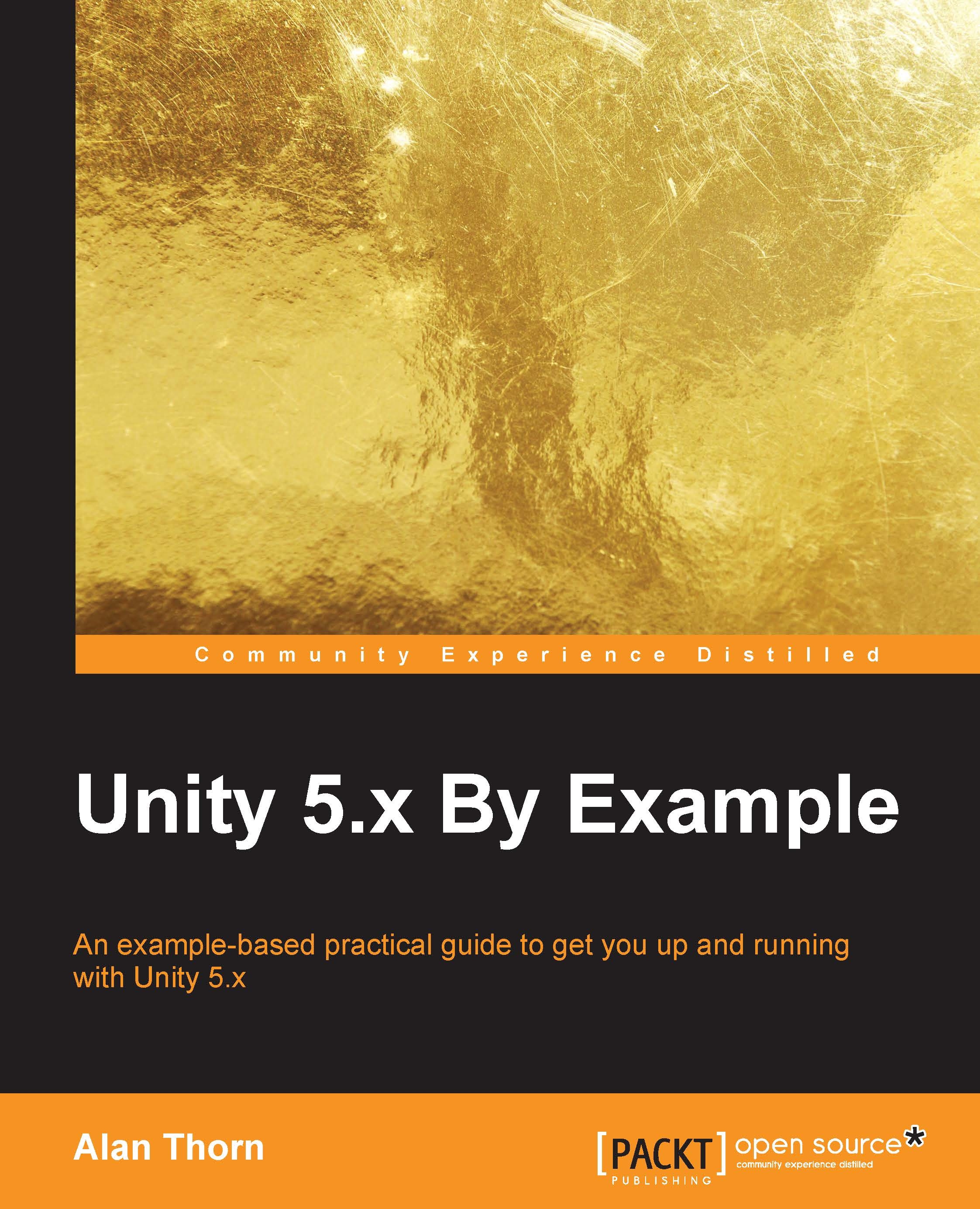-
Book Overview & Buying

-
Table Of Contents

Unity 5.x By Example
By :

Unity 5.x By Example
By:
Overview of this book
 Free Chapter
Free Chapter
 Sign In
Start Free Trial
Sign In
Start Free Trial

 Free Chapter
Free Chapter
This chapter enters new territory now as we begin development work on our second game, which is a twin-stick space shooter. The twin-stick genre simply refers to any game in which the player input for motion spans two dimensions or axes, typically one axis for movement and one for rotation. Example twin-stick games include Zombies Ate My Neighbors and Geometry Wars. Our game will rely heavily on coding in C#, as we'll see. The primary purpose of this is to demonstrate by example just how much can be achieved with Unity procedurally (that is, via script), even without using the editor and level-building tools. We'll still use these tools to some extent but not as much here, and that's a deliberate and not an accidental move. Consequently, this chapter assumes that you have not only completed the game project created in the previous two chapters, but also have a good, basic knowledge of C# scripting generally, though...
